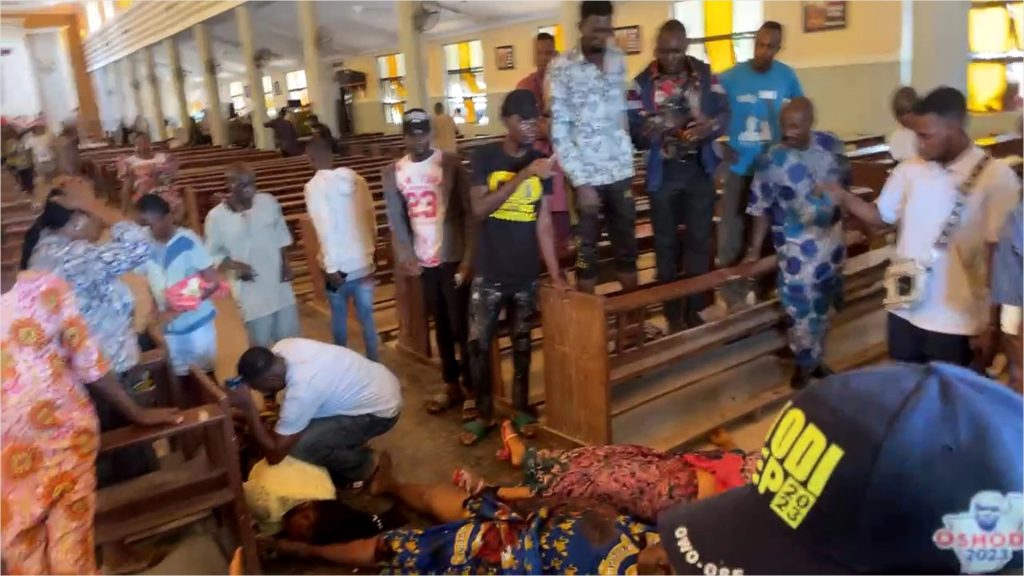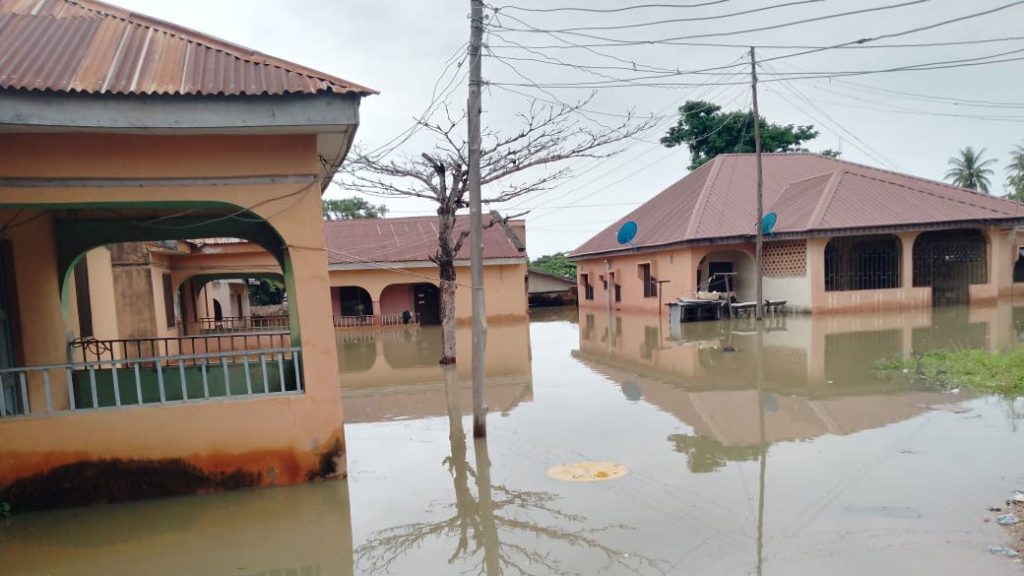By Wisdom Deji-Folutile
2022 was a pivotal year for Nigeria in politics, entertainment, business, and every other sphere.
The year will historically be remembered for the mass emigration that has swept through the nation as a result of several factors. Some of those factors were insecurity and the country’s penchant for heralding tragic tales.
AF24NEWS highlights some of the tragic events that rocked Nigeria in 2022.
Hundreds die as bandits attack Zamfara State
In January, the new year began with blood-shedding as the banditry crisis led to the death of over 200 people in Zamfara State.
From January 4 to January 6, armed bandits laid siege to several settlements within the town of Kurfar Danya, attacking villages in the Anka and Bukkuyum local government areas of Zamfara.
For three days, there was no government intervention.
The massacres ended on Thursday, 6 January, after military forces intercepted some of the bandits.
A bandit leader named Bello Turji claimed responsibility for the massacres.
As a result of the genocidal attack, over 10,000 persons were displaced and five settlements were destroyed. Thousands of cattle were also carted away by the bandits. According to some reports, the bandits continued to rain terror on the area till as late as January 11.
Zamfara Governor, Bello Matawalle, later accused the media of exaggerating casualty estimates.
Lagosian raped, and killed by BRT driver
Barely two months after the commencement of 2022, Nigerians were shocked by the report of a missing 22-year-old Lagosian, Ayanwola Oluwabamise. Bamise, a fashion designer, had reportedly boarded a Lagos State Bus Rapid Transit (BRT) vehicle on February 26 but never made it home. She was never found alive again.
During her commute to Oshodi aboard the BRT on that fateful day, the fashion designer was said to have observed that the driver was not picking up other passengers at subsequent bus stops along the route. Disturbed, she messaged her friend and sent voice notes detailing her predicament.
About nine days after she went missing, Bamise’s body was found lying on the Carter Bridge by Ogogoro Community, Lagos Island.
The last person to see her alive was Andrew ’Nice’ Omminikoron, the BRT bus driver. Mr Omminikoron was later apprehended by officials of the Department of State Services at Ogun State after he fled Lagos State. Although it had been concluded that the BRT driver was a suspect in the death of Bamise, he nevertheless claimed that gunmen attacked the bus during the trip and dragged the late fashion designer out of the moving bus.
However, after photos of Mr Nice made the rounds on social media, some rape victims also came forward and identified the bus driver as their abuser.
It was later revealed by Superintendent of Police Goddy Ihende, that the driver had been raping victims in secluded places for months.
Chinelo, others killed in Kaduna-Abuja train attack
On 28 March 2022, bloodthirsty bandits attacked the Abuja-Kaduna rail route in Katari, Kaduna State, killing eight people and kidnapping over 60 passengers.
The incident was part of the protected bandit conflict in the country, taking place just two days after another bandit raid at Kaduna Airport, in which two personnel from the Nigerian Airspace Management Agency (NAMA) were slain and several other workers were kidnapped.
The night of the train attack was a very dark one for Nigerians both at home and abroad, as videos of the attack scene and the blood-soaked, perforated bodies of dead commuters were circulated on social media.
However, one particularly traumatising development was the death of 29-year-old dental surgeon Chinelo Megafu. The young medical doctor had tweeted what is now taken to be her last words shortly after the attack. “I’m in the train, I have been shot. Please pray for me,” she had said in the viral tweet.
The last of the kidnap victims were released nearly seven months later on October 5.
Famous Gospel Singer dies from alleged domestic violence
In the second week of April, news about the death of Osinachi Nwachukwu slipped into the open.
Osinachi, who sang the popular contemporary worship song Ekwueme, was rumoured to have passed due to throat cancer.
As the Christian faithful mourned her passing nationwide, the narrative that she had been killed by a terminal illness was turned on its head when a family member of the deceased dropped a bombshell. Blood relatives of the songstress revealed that before her death, the singer had been hospitalised due to injuries she had sustained after a beating from her husband.
It was later revealed that Peter Nwachukwu, who was married to the late singer, was a known domestic abuser and had beaten her severely in times past.
Osinachi, a high-profile religious figure, had however opted against divorce or separation.
The death of the gospel singer opened up a highly contended debate about divorce and domestic violence—two taboo topics for many Nigerian Christians.
Deborah lynched for ‘blasphemy’
The chasm between the two predominant faiths in the country was etched even deeper when Deborah Samuel Yakubu, a second-year Christian student at the Shehu Shagari College of Education in Sokoto, was lynched by a mob on 12 May 2022 for alleged blasphemy.
The senseless killing was perpetrated after Deborah criticised her Muslim classmates for posting a religious post on their study group on WhatsApp. Deborah, who had believed the group should have been reserved for academic purposes, had warned the errant student to refrain from posting religious content on the group, and when she was warned she said:
“Holy ghost fire, nothing would happen to me, is it by force you guys would always be sending this religious stuff in the group, the group wasn’t created for that, but rather as a notice for when there’s a test, assignment, exams etc not these nonsense Religious posts.”
An outraged camp of students had sought to apprehend her, and despite desperate attempts to protect her life, a mob pried her away from safety and stoned her to death. Deborah’s corpse was then burnt beyond recognition. The scene of the event along with its perpetrators was seen in highly-circulated video footage.
An eyewitness, who was also a close friend of Deborah, recounted that her last words were “What do you hope to achieve with this?”.
The state government closed down the college indefinitely to begin investigation proceedings. Some of the suspects were also apprehended. However, opinion on the internet was divided. Dissenting voices of religious scholars in the region sided with the killers, saying that Deborah had “crossed a line”. In another instance, the Presidential candidate of the Peoples Democratic Party (PDP) Atiku Abubakar, deleted a tweet condemning the violent killing after receiving death threats and dissenting sentiment from Muslim supporters.
40 killed in church massacre

Nigeria has remained one of the hotbeds for terrorism and violent conflict on the face of the earth.
However, such extremism rose to unprecedented heights when worshippers at the St Francis Catholic Church in the Owo Local Government Area of Ondo State were killed in a Sunday service.
On June 5, for at least 40 persons, the closing prayer of the church service became a final prayer as armed men opened fire on the members of the congregation as the service was being concluded [https://www.bbc.com/news/world-africa-61830085]
Persons of all ages, old and young were killed—with at least four children recorded as victims of the ruthless massacre.
34 states affected by flooding

Nigeria was hit with its most deadly natural disaster in the last decade when heavy rains and the overflowing Lagdo dam in Cameroon led to the death of at least 612 people and the displacement of 1.4 million more.
According to the federal government, about 200,000 houses were damaged, with 332,327 hectares of land affected by the floods which began in August 2022.
The UN and the Federal Government have said climate change is largely responsible for the flooding.
The floods were exacerbated on September 13 when water was released from Lagdo dam, Cameron. The excess water usually cascades down the River Benue and its tributaries, the worst affected states are Kogi, and Benue.
However, Nigerians and environmental experts have held the Federal Government partly responsible for the disaster.
This is because when the Lagdo Dam was constructed in 1982, there was an agreement by Nigerian authorities to build a second, twin dam in Adamawa State to contain the overflows.
The proposed dam, called the Dasin Hausa Dam project, was supposed to be situated in Dasin Village of the Fufore local government area of the state. However, the project was never built by the Nigerian government.
Nigerians also criticised the government’s lacklustre response to the flooding, which affected 34 of the 36 states in the federation and crippled economic activity in many parts of the country.






















